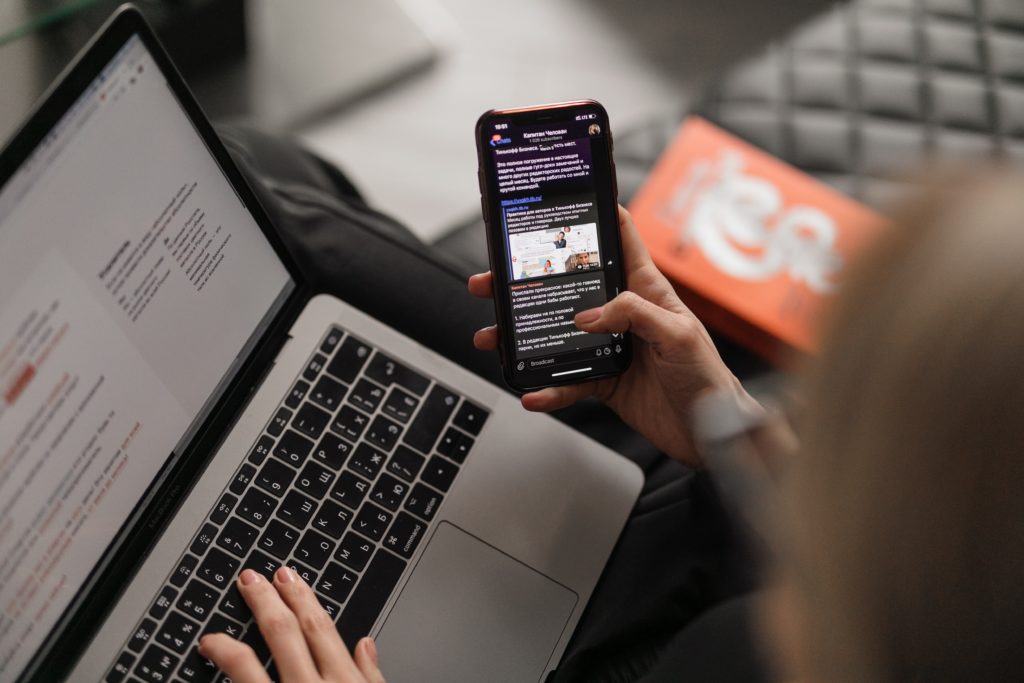What is the biggest fear that people have? Heights? Speaking in public? Dying? What about losing their phone? survey results show two thirds of respondents fear losing their mobile phones. Nomophobia should be taken seriously because it can indicate underlying problems such as social anxiety disorder and panic disorders. Do you suffer from nomophobia like 66 percent?
What is nomophobia?
The fear of losing or not having a mobile phone is known as nomophobia. The term “nomophobia” is a short form for “no-mobile phone-phobia”. It’s not an officially recognized disorder and some people think that the word “phobia”, may be incorrect.
Psychologists are increasingly using the term, along with its associated symptoms, to describe anxiety caused by losing a mobile phone. What’s the worst thing? The rise of nomophobia shows no sign of stopping.

Nomophobia symptoms
Nomophobia is more common in young adults than in older adults. Women are also more susceptible to it. Regardless of gender, anyone can feel anxious when they are separated from their smartphone. Nomophobia is when:
- Never turn off your mobile phone.
- Sleeping with your mobile phone beside you is a bad habit.
- Your battery will never run out.
- Checking for emails, texts, or missed calls is a constant obsession.
- Take your mobile phone to the toilet.
- Have more than one cell phone?
- Even when your phone is supposed to be turned off, you use it in places where mobile phones are prohibited, like schools and airports.
- Even when on the phone with someone, you automatically check your pockets to make sure your phone is still in there.
- When you misplace your phone, lose the reception or when your battery runs out, it can be a stressful experience.
Are you experiencing any of the following symptoms? You may have nomophobia. You’ve already identified your problem and can now work to reduce anxiety.
Nomophobia: 6 ways to overcome it
Nomophobia is not a lifelong condition. You do not have to give up your mobile phone. You can adopt healthy habits to interact with your smartphone without becoming obsessed or unable to function when it is not nearby. To help reduce anxiety, start with these simple exercises.
1. Remove your phone from the bedroom
Be honest. Are you really able to sleep without your phone? How well can you sleep if your phone is constantly ringing? How much can you wait till morning? It’s even worse, because using your cellphone before going to bed can cause you a “hangover” that makes you tired the next morning. Your phone is only useful for waking you up. There are also alternatives to your mobile’s alarm.
Treating nomophobia is as simple as removing your phone from the bedroom when you are sleeping. Keep the phone away from the bed. Place it far enough away that you can’t reach it. Once you’re used to it, place the device just outside your bedroom. You can also leave it on the floor in your living room, home office or bedroom to help you get used to not having it.
2. Establish boundaries for yourself
You can test your limits to determine what’s acceptable for you. You could start off by deciding not to use your cellphone during certain activities, like driving or eating dinner. Once you’re comfortable, schedule periods of time away from your smartphone, even for 10 minutes.
Try taking breaks when you are using your mobile phone the most. You might take an hour off from social media, but be available to receive texts or emails.
3. Find a friend who can hold you accountable
It’s not just the fear of losing a phone. This is an obsession with having your mobile phone at hand all the time. Social support is important for changing your behavior and lifestyle. You can ask a close friend for help in deciding what boundaries you should set, and to keep them.
It could be your partner, a close friend or a friend with whom you often spend time. Or it might be someone who has nomophobia and is helping you overcome their anxiety.
4. Go On a Technology Fast
Schedule a day every month where you don’t use your phone, computer, or tablet. Social media is not allowed. No emails. It’s like a dopamine detox.
Plan a relaxing day outside, like camping on the beach or going to the park. Spend time with your family and close friends. You’ll probably feel more liberated.
5. Practice Relaxation Techniques
You can cope better with anxiety by using relaxation techniques such as mindfulness, yoga, meditation and other forms of relaxation. Relaxing your mind and body will help you to better manage your urges to use your smartphone and access social media. What’s the catch? You can do this without using a relaxation application, so you don’t rely on your smartphone to cure your addiction. This will just encourage your phone addiction.
6. You Might Want to Talk with a Therapist
A recurrent anxiety disorder may cause a phobia of the unknown. You may need to consult a therapist or counselor if you are anxious about being separated from your mobile phone and other techniques don’t help.
It is difficult to overcome any addiction or anxiety disorder, but with hard work and dedication, it’s possible. Do you believe you suffer from nomophobia or a fear of the word? What are you going to do about it?
Sources:
https://www.securenvoy.com/blog/2012/02/16/66-of-the-population-suffer-from-nomophobia-the-fear-of-being-without-their-phone/
https://time.com/2118/were-all-doomed-using-your-smartphone-before-bed-can-cause-cellphone-hangover/